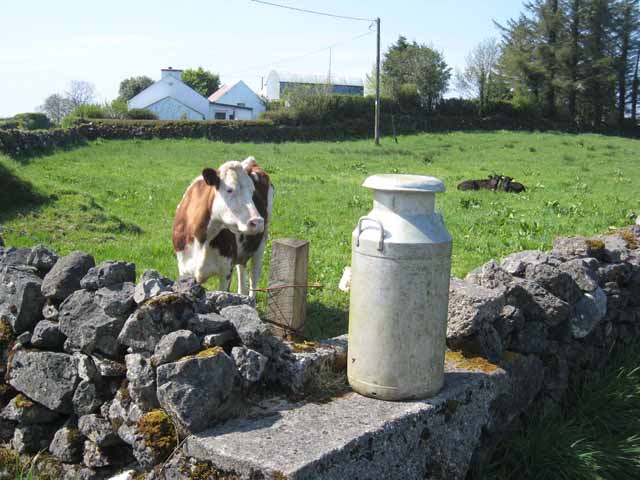With milk quota due to end in 2015, how is Europe preparing?
 A European Commission conference on the dairy sector after quotas brought together representatives of the usual heavy hitters – over 400 stakeholders from the food chain, MEPs, Member States, CoR representatives – and very few NGOs.
A European Commission conference on the dairy sector after quotas brought together representatives of the usual heavy hitters – over 400 stakeholders from the food chain, MEPs, Member States, CoR representatives – and very few NGOs.
Commissioner Cioloş’ aim was to use the event to relaunch a debate for new ideas and analysis. Not a broad brainstorming, more an open space for market supply management supporters to advocate their policy preferences.
Cioloş’ introduction stated that the end of milk quotas will make it difficult to monitor dairy markets -given the lack of data- while the EU will need more pro-actives ones to intervene in cases of imbalance.
In that respect the Commission will set up an internal observatory in charge of analysing the evolution of dairy markets on a monthly or quarterly basis, in cooperation with Member States and operators.
“On the one hand this observatory will provide an early warning of the risks of imbalances on markets, taking into account the diversity of dairy products, and on the other hand carry out prospective analysis in the context of price volatility”, said Commissioner Cioloş.
Despite market positive short term trends for EU dairy products exports – notably cheese and milk powder towards Eastern Asia- both economic and socio-territorial impacts of ending milk quotas have not been taken into account by the EC.
It’s the assumption shared by different key panelists including the European Milk Board (EMB) that has co-presented a study on a European Monitoring Agency, echoing precedent Cioloş announcement.
According to EMB, this tool could – through a flexible adjustment of produced milk volumes to demand – guarantee a sustainable market balance and keep milk prices on average at a cost-covering level.
That way a sustainable and widespread milk production and supply in the EU could be guaranteed.
Besides, as pointed by(Committee of the Region’s) CoR’s representative René Souchon during the conference, the phasing-out of the milk quota system production will bring about territorial imbalances.
Thanks to the 2012 milk package regulation, only 11 Member States have set mandatory contracts among producers and retailers and 4 others will follow, mainly in countries which dairy co-operatives is weak. However in general, co-operatives are exempted from mandatory contracts.
New Common Market Organisation (CMO) from 2014 includes few measures to manage crisis in dairy. Since rapporteur MEP Michel Dantin’s proposals have been scrapped in the last CAP reform negotiation, only delegated acts in the hands of the EC could create exceptional supply management measures in the case of a severe market imbalance.
Meanwhile, In the most intensively farmed areas, milk production is becoming ever more concentrated -i.e. in the North-West part of the EU- while in many disadvantaged areas dairy production is crucial for rural vitality but is threatened by lower milk prices dumping in the plain milk regions.





